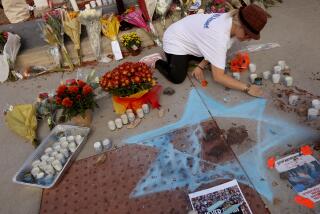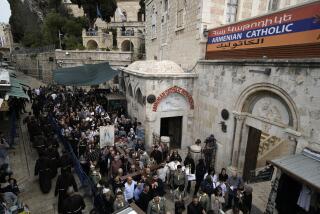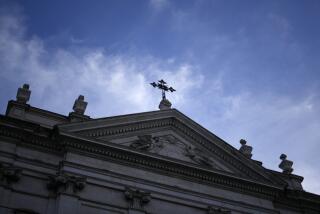Middle East exodus part deux
IN BLAMING AN exodus of Christians from the Middle East on the “short-sightedness and ignorance” that led to the war in Iraq, the spiritual head of the Church of England has identified a part — but only a part — of the sad phenomenon he rightly decries.
In a Christmas-season column published in the Times of London, Archbishop of Canterbury Rowan Williams notes that opponents of the Iraq war had warned that Western military action “would put Christians in the whole Middle East at risk.” Williams says that events since the 2003 invasion of Iraq, including the departure from Iraq of thousands of Christians, have made prophets of war critics. “The first Christian believers were Middle Easterners,” Williams writes. “It’s a very sobering thought that we might live to see the last native Christian believers in the region.”
There is some truth in Williams’ sermon. Under Saddam Hussein, Iraq was relatively tolerant of its Christian minority (one of his chief advisors, Tarik Aziz, was a Chaldean Catholic). Now the growing power of Muslim militias in Iraq — and the dislocations that are part of any war — have contributed to a departure of Christians from a country in which they have ancient roots.
Iraq isn’t the only nation in which Christians, affluent and poor alike, have come to depend on the sufferance of a political strongman. The same is true of Syria and of Egypt, where portraits of President Hosni Mubarak in church vestibules reflect the fact that his regime is viewed by many Christians as a buffer against the sort of Islamic extremism that has been stoked by the war in Iraq.
Yet Williams’ critique is selective, and he undermines its credibility further by coupling his comments about Iraq with a denunciation of the “security fence” built by Israel to protect Israelis from terrorist attacks. The fence is no substitute for an Israeli-Palestinian peace agreement, and Williams is correct that the barrier has exacerbated the plight of Palestinians, including Christians, in Bethlehem.
Palestinian Christians, like their Muslim neighbors, have suffered under an often heavy-handed Israeli occupation. But Israel has not declared war on Christianity, as have some Muslim extremists, and it has a generally good record of safeguarding Christian holy places. And Israeli occupation persists in part because the Palestinian government, controlled by the Islamic Hamas party, refuses to recognize Israel’s right to exist. Hamas itself undoubtedly alienates many Palestinian Christians, who played a significant role in the secular Palestine Liberation Organization.
Preachers take pride in speaking the truth, and there is some truth in Williams’ excoriation of the West and Israel for the departure of Christians from the Middle East. But it’s not the whole truth.
More to Read
Start your day right
Sign up for Essential California for news, features and recommendations from the L.A. Times and beyond in your inbox six days a week.
You may occasionally receive promotional content from the Los Angeles Times.






